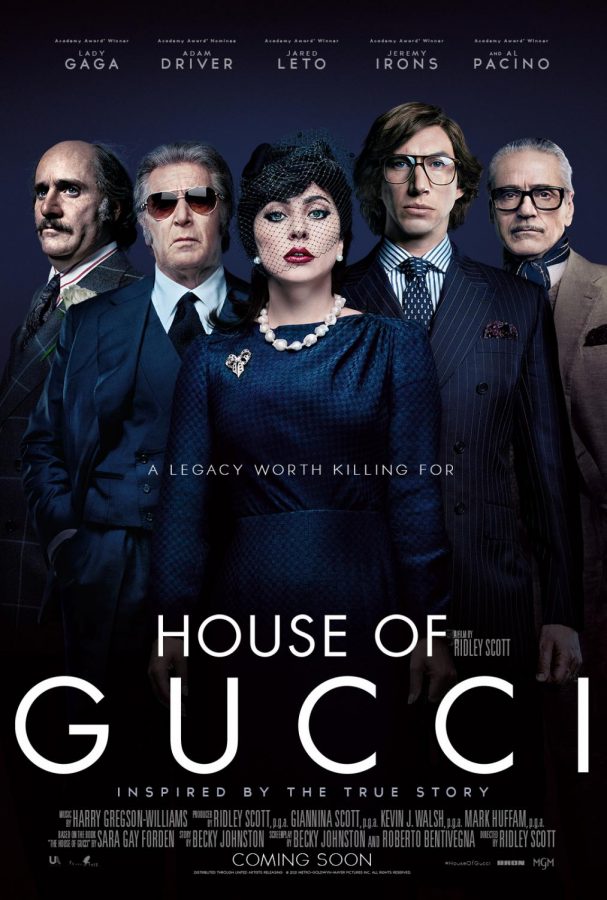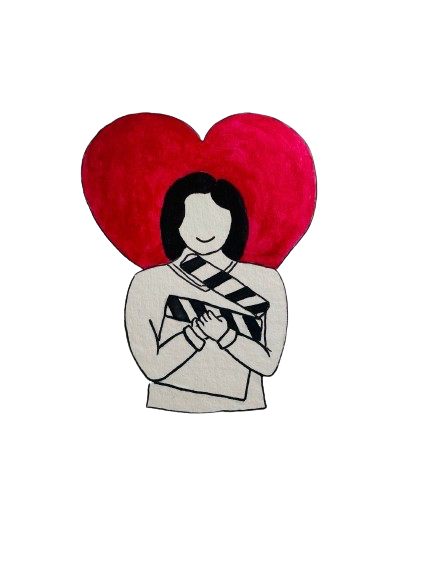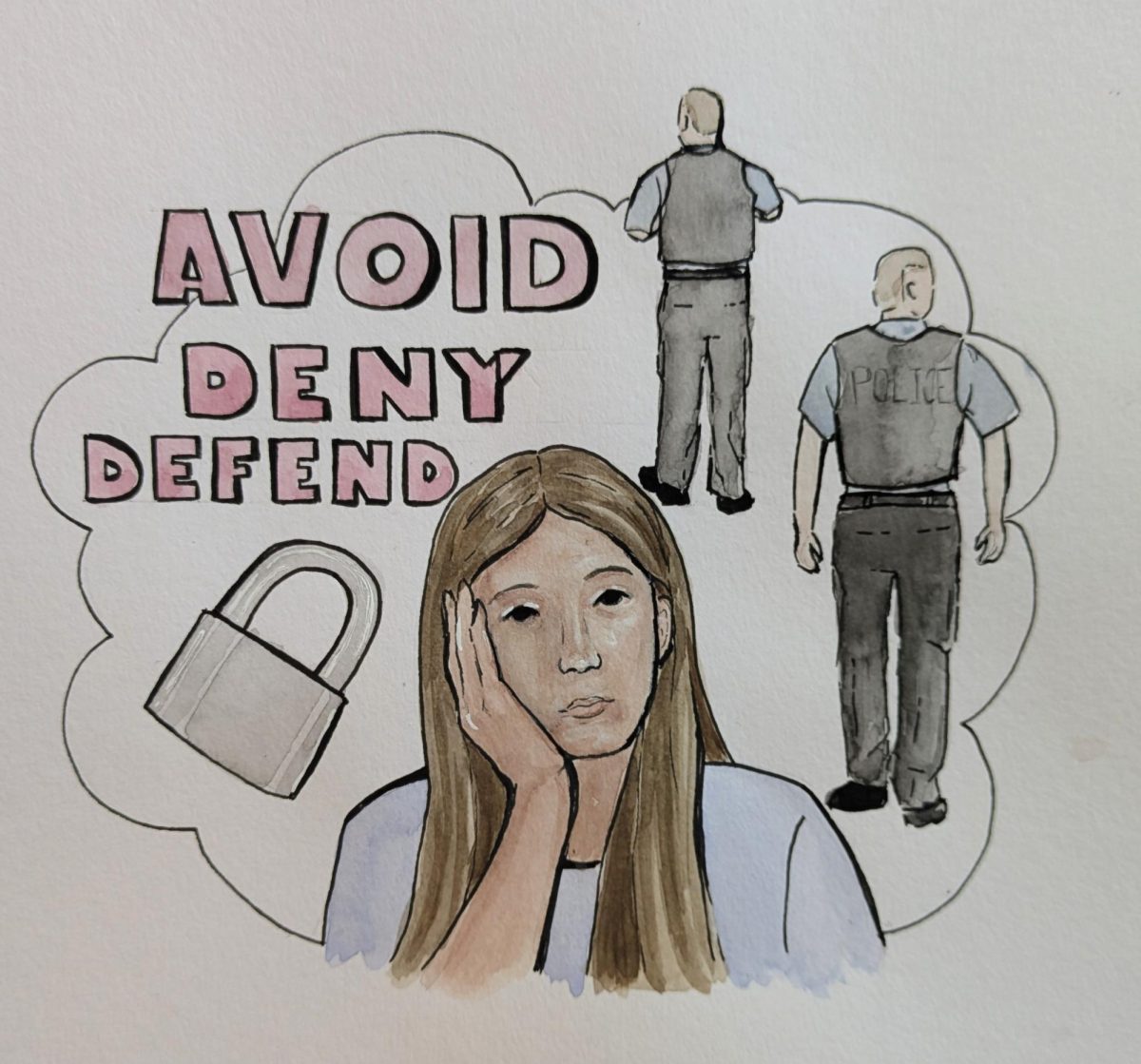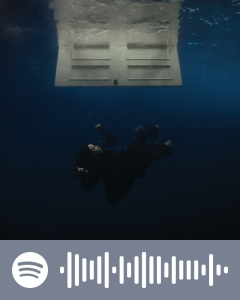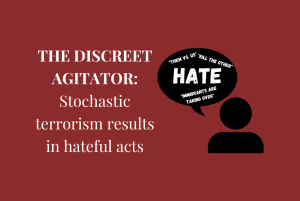House of Gucci: 2 hours and 38 minutes of chic mediocrity and conflicting tones
December 22, 2021
This previously ran in our December 2021 print issue.
Released on November 24th, House of Gucci follows the rise and fall of Patrizia Reggiani (Lady Gaga) as she twists her way into the titular family business after marrying into the powerful Gucci name.
The film also stars Adam Driver, Al Pacino, and Jared Leto as members of the fated family. While it seems to present itself as an Oscar contender, the Ridley Scott directed film is more popcorn flick than prestige.
Based on a true story, the movie details the events leading up to the murder of Maurizio Gucci, orchestrated by his wife Patrizia. Despite the crime being framed as the big event of the narrative, it boils down to one underwhelming go-to-the-bathroom-and-you’ll-miss-it moment. And considering the nearly three-hour runtime, some viewers may need that bathroom break. Focusing less on Adam Driver’s law student turned greedy businessman further cements that this story is Patrizia’s, but the enormous buildup to such a rushed ending is anything but gratifying.
The erratic tone and pacing of House of Gucci create a muddled mix of a film that can barely be buoyed by the immense talent of its cast. Much of the dialogue sounds like it was written solely with the intention of being quotable. Lady Gaga will likely pick up a handful of award nominations for her performance, which was one of the few consistently good aspects of the film. As always, Jared Leto really goes for it, and while Paolo’s utter ridiculousness doesn’t quite work with the rest of the story, his character provides the odd comic relief that the film seems too scared to lean into.
House of Gucci just doesn’t know what it wants to be. Certainly stylish yet ultimately hollow, the movie attempts to walk the line between camp and crime drama and fails. For example, there is a subplot in the film centering around Tom Ford and a runway show featuring assless chaps. The scene is meant to represent the moral decline of Maurizio, who was once an endearing nerd mesmerized by his ambitious wife but has now become a power-hungry cheater. It’s a welcome diversion from the exhausting melodrama that came before it, but the scene doesn’t fit. It’s farcical. And yet, the movie insists on being taken seriously.
One could argue that the faux solemnness is out of respect for the Gucci family, but then having Patrizia Reggiani, who was charged with arranging Maurizio’s assassination, as the protagonist is like a slap in their face. From Double Indemnity to Gone Girl, Hollywood loves a femme fatale, and Reggiani, who was dubbed a “Black Widow” by the media, might just join the ranks.
Ridley Scott’s vision, while ambitious, doesn’t quite pan out. The story behind House of Gucci could have translated onscreen as a sleek, pensive drama, or a flashy tragicomedy, but the film falls somewhere in the middle. And not in a particularly good way.


